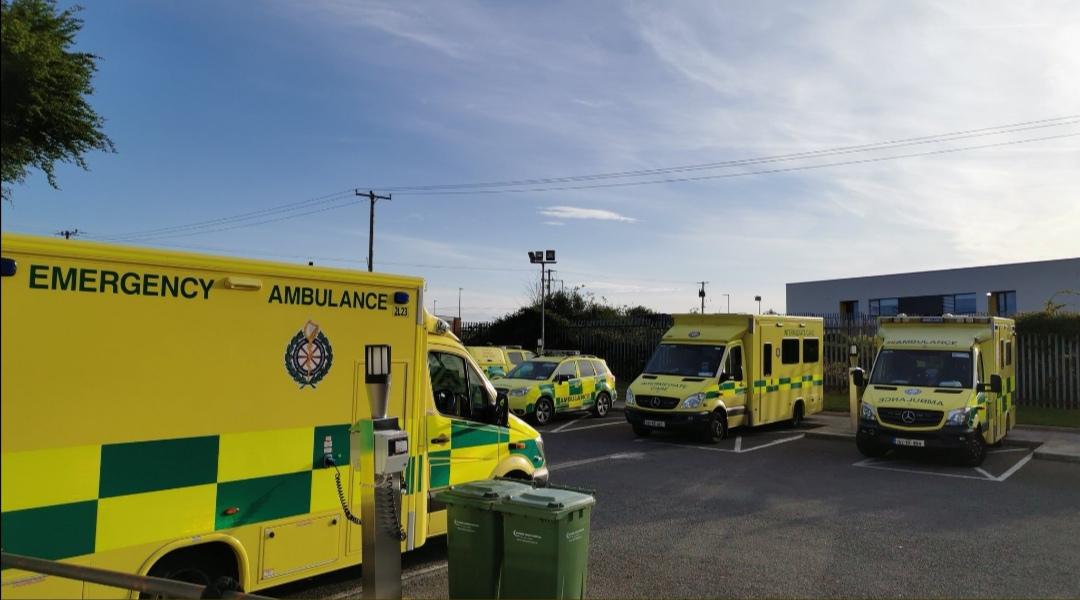

New research highlights the challenges, worries and ethical dilemmas faced by first responders during COVID-19
A new report from DCU which looks at the experiences of prehospital first responders during the COVID-19 pandemic, found that contracting the virus and passing it to loved ones was a primary source of worry for them. A lack of facilities and the equipment needed for protection and sanitisation was also found to cause distress.
A range of ethical dilemmas faced by first responders were also highlighted as part of the report, including having to bring people to hospitals while knowing this increased the risk of infection to the patient.
Respondents also felt conflicted by having to stop families from accompanying their loved ones to the hospital, knowing they may never see them again and decisions concerning ventilation and resuscitation were often challenging.
Despite this, a sense of duty and collegiality motivated first responders. The public outpouring of gratitude, and community spirit were sources of strength and support to participants throughout the pandemic. Trust in the government’s leadership and guidance from the Chief Medical Officer also mitigated some of the stress and worry for these workers during the pandemic.
Funded as part of DCU’s COVID-19 Research and Innovation Hub, the LISTEN project highlights the experiences of first responders who have been completing testing, medical assessment and initial treatment of suspected COVID-19 cases in a range of settings. It looks at levels of risk, impact and worry in relation to COVID-19, as well as the perception of preparedness and response, alongside their experience of staff safety, health and wellbeing.
It is hoped the findings will help inform the current response to COVID-19, risk management in the medium-term, and help build longer-term national resilience.
- 92% of respondents believe their occupation placed them at higher risk of contracting COVID-19 – largely due to regular contact with infected or asymptomatic patients.
- Contracting COVID-19 and passing it to loved ones was a primary source of worry for 82% of respondents.
- Duty of care to patients created tensions with the duty of care for first responders’ families – especially around the increased risk of contracting COVID-19.
- A lack of facilities and issues with uniforms and PPE also caused distress.
- First responders faced a range of ethical dilemmas, including bringing people to hospitals while knowing this increased the risk of infection for patients.
- Decisions concerning ventilation and resuscitation were often challenging.
- Respondents felt conflicted by having to stop families from accompanying their loved ones to hospital, knowing they may never see their relatives again.
- Trust in the government’s leadership and guidance from the Chief Medical Officer mitigated some of the stress and worry during the pandemic.
- A sense of duty and collegiality motivated first responders. The public outpouring of gratitude, and community spirit were sources of strength and support to participants throughout the pandemic.
Speaking about the importance of this research and its findings, Professor Caroline McMullan, Professor of Business & Society, DCU Business School and report author, said:
“This research records the voice of an often overlooked, yet critical element of the COVID-19 response and gives us all an opportunity to learn from their response.
Notwithstanding all the worries, duties of care, ethical dilemmas and risks, first responders continued their work as prehospital healthcare professionals during the most unprecedented and challenging health emergency in the history of the state. The public’s acknowledgement of their work reflects the outstanding debt owed by society to first responders during this pandemic.”
The data is based on a sample of 815 responses, with the largest representation from the National Ambulance service, accounting for just over 45% of respondents, followed by fire service personnel, drawn largely from Dublin Fire Brigade which deliver fire and ambulance services for the city. Responses were collected during the first response phase between April 30th and May 17th just before restrictions were lifted.
LISTEN report authors: Professor Caroline McMullan, Dr Ann Largey, Gavin D. Brown and Grainne O'Shea from DCU’s Business School.
To download a copy of this report, visit: http://doras.dcu.ie/25156/1/DCU%20LISTEN%20Research%20Report.pdf
